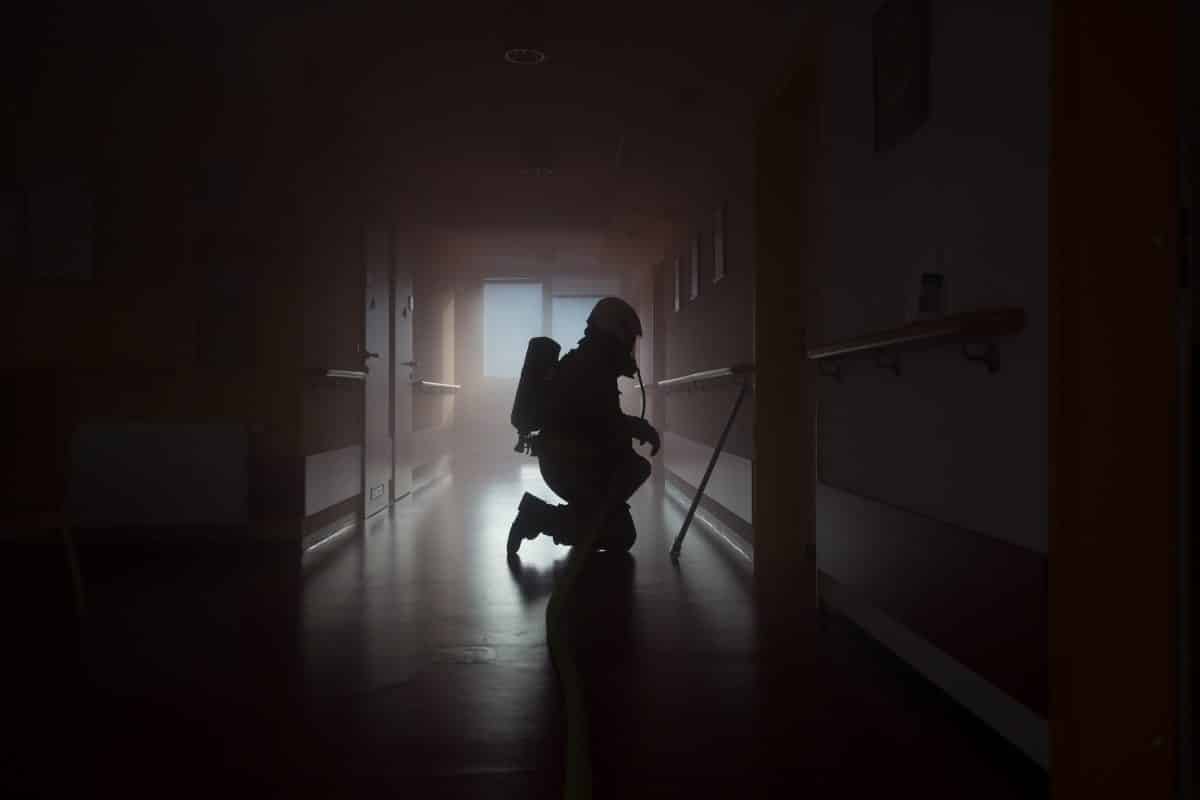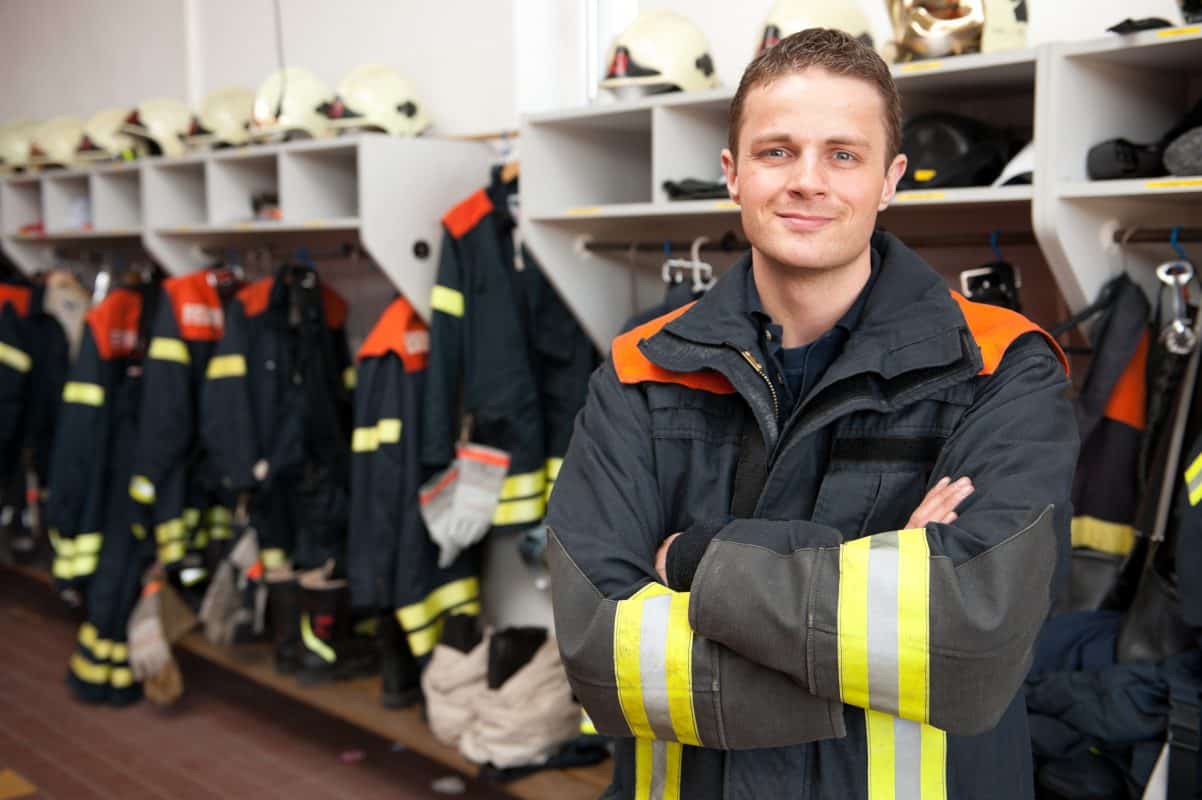The Scottish Fire and Rescue Service (SFRS) is the fourth largest fire and rescue service in the world, and one of the most esteemed and highly-regarded organisations in Scotland. They are a national entity, and deliver their services from three specific hubs within the country.
In order to work for the Scottish Fire and Rescue Service, you’ll need to go through a difficult selection process, and match all of the criteria that the recruiting team is looking for. Naturally, it is not easy to become a firefighter, either in Scotland or anywhere else in the world. Only a certain type of person is right for this role, and that is why it’s imperative that the selection process identifies the strongest possible candidates.
In this blog, we’ll look at what it takes to join the Scottish Fire and Rescue Service, and give you an overview of the selection tests you’ll face.
Where Does The Scottish Fire and Rescue Service Operate?
There are three primary areas in which the Scottish Fire and Rescue service operates. These are:
The North of Scotland – There are 1.2 million people living in the North, and this includes cities such as Aberdeen and Dundee. The Scottish Fire and Rescue service has a total of 164 stations within the North, with 12 wholetime stations.
The West of Scotland – There are 2.4 million people living in the West, and this includes cities such as Glasgow. The Scottish Fire and Rescue service has a total of 127 stations within the West, with 39 wholetime stations.
The East of Scotland – There are 1.6 million people living in the East, and this includes cities such as Edinburgh – Scotland’s capital. The Scottish Fire and Rescue service has a total of 65 stations within the East, and this includes 23 wholetime stations.

Scottish Fire and Rescue Service: Values
As mentioned, it’s extremely important that the SFRS employs the right type of people. This is extremely dangerous role – it requires a person with courage and dedication – and this means that not just anyone can work as a firefighter. With this in mind, during the recruitment process, the SFRS has a set of select personal criteria that you will need to meet. These are as follows:
Safety. You won’t be surprised to learn that safety is absolutely paramount to this role. The SRFS wants people who are committed to the idea of safety, and who can adhere to the correct protocols and standards. This job involves saving lives – and this means that if you are ignoring safety rules then you are endangering not just yourself, but others too. It’s incredibly important that you have a working knowledge of safety before you apply to join the Scottish Fire and Rescue Service.
Teamwork. Teamwork is a fundamental element of working as a firefighter. This is certainly not a one person job, and you will be reliant on your teammates, just as they will rely on you, at all times. With this in mind, it’s vital that you have exude and demonstrate the fundamental qualities that make a good teammate. These include: communication, empathy, an ability to get along with others, leadership, and enthusiasm.
Respect. The word ‘respect’ has many different connotations, but in the context of the SFRS it means showing respect and understanding for every single person that you meet. Scotland is a diverse country, with people from many different backgrounds and cultures. As a firefighter, you will need to deal directly with many of these people, and therefore it’s imperative that you can show respect for diversity. Not only that, but you also need to display respect for your colleagues and your superiors too. It’s important for the Scottish Fire and Rescue Service to see that you have respect for authority and that you are someone who is happy to follow orders/instructions.
Innovation. The mark of any successful organisation is that they do not rest on their laurels and let themselves fall behind. This is especially important for the Scottish Fire and Rescue Service, who simply cannot afford to sit back and be satisfied with the work they’re doing – there will always be fires and there will always be lives that need saving, and this means that the SFRS are constantly adapting, and seeking ways to move forward and improve the service. This is the reason why they need innovative employees. The service is looking for forward thinkers – people who can offer creative solutions to problems and have an impact on the long-term future of the organisation. The employees of any company need to reflect the company’s values and mission statement, and therefore it’s essential for employees of the SFRS to be innovative and forward-thinking.
The SFRS Selection Process
The selection process for the Scottish Fire and Rescue Service is extremely comprehensive, and candidates will have to sit an enormous variety of tests, a fitness assessment, and an interview. Below we have provided you with a breakdown of all the different stages, and what you’ll have to go through:
Stage 1 – Online Application. Here, you will need to fill in an online application form, downloaded directly from the SFRS website. Along with asking you basic eligibility-style questions, you can also expect to answer a series of competency-based questions too. For example, you might be asked to explain, in 200 words or less, why safety is essential for firefighters. Once you’ve submitted the form, you will need to wait for the application period to close, before the SFRS reviews your submission.
Stage 2 – Online Psychometric Testing. If you successfully pass the application stage, then you’ll be invited to complete an online psychometric test. There are a potential of two tests here:
A Situational Judgement Test. In this test, you’ll be given a series of passages, and then asked to select the best answer from a range of choices. This test is designed to assess your decision making, logical thinking skills, and how well you would react when placed in everyday firefighter-related situations. Every person applying will need to sit this test.
A Calculation Test. Not all candidates have to take this test. If you can demonstrate that you have a National Grade 4 or 5 in Mathematics, a Standard Grade General, an Ordinary Grade, Intermediate 1 or 2, or a Higher or Advanced Higher in Mathematics, then you won’t need to take this. If not, you’ll be asked to answer a series of calculation-based/numerical questions. This is important for the SRFS, as there is a numerical element to the role, and it’s essential that you are able to perform quick maths under pressure – for example if you were calculating how much air you had left whilst out at the scene of a fire.
Stage 3 – Scottish Fire and Rescue Service Assessment Centre. The third stage in the selection process in an assessment day, where you will sit a variety of tests. The tests that you’ll sit are as follows:
The Fitness Test. During this assessment, you’ll need to take the bleep test. This involves running between two points in time to a series of bleeps, which will increase in speed as the test goes on. Candidates are required to achieve a level of 8.8 in this assessment – which is fairly challenging!
The Practical Selection Tests. This is a challenging series of assessments, which is designed to determine whether candidates for the SRFS have the capability of performing physical tasks commonly associated with firefighting. The tests include the following:
- A ladder extension test.
- A casualty evacuation exercise.
- A test which involves working in confined spaces
- An equipment assembly test
There are also several other elements to this test, all of them practical. In our blog next week, we’ll be covering this exact subject in more depth – so stay tuned!
Stage 4 – Competency Based Interview
This will normally happen on the same day as the assessment centre. A competency-based interview is an interview where you will be asked questions based on the competencies/values expected of a Scottish Firefighter. So, the assessors will focus their questions around the values mentioned previously: Safety, Teamwork, Respect, and Innovation. More often than not, they’ll ask you to demonstrate when you have used these competencies in the past, and give an example of how you utilised them.
When answering competency-based interview questions, it’s essential to focus on the following points:
- Make sure you keep your answer structured and relevant. You don’t want the interviewers to lose track of what you are saying.
- Focus on the competency they are asking for. Don’t get sidetracked, or you’ll lose marks.
- Try to demonstrate that the outcome of the situation you are describing was positive, as a result of your actions.
If you are successful at the assessment centre, then you’ll be subject to medical and background checking. Once that’s out the way, you can start your career as a Scottish Firefighter!
Practice For Your Scottish Psychometric Tests
If you’re looking to gain an edge in the psychometric tests, then look no further than our fantastic practice resource. Our testing suite is packed with incredible practice questions and detailed explanations, to put you one step ahead of the curve. Simply click the link below for more information
https://www.how2become.com/free-psychometric-tests
FREE PRACTICE TESTS

